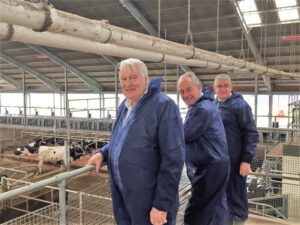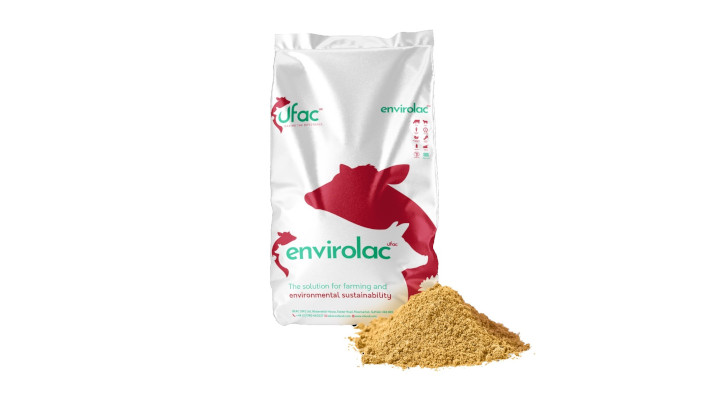A new paper published in Animal Feed Science and Technology journal has concluded that envirolac, a new palm-free fat supplement from UFAC-UK, can replace palm-based fats and reduce the carbon footprint of milk production.
It was co-authored by Professor of Dairy Science at the University of Nottingham’s School of Biosciences, Phil Garnsworthy, alongside Neil Saunders and Jennifer R. Goodman.
The paper finds that envirolac increased milk yield and milk fat and protein concentrations, with no difference to the dry matter intake when compared to a calcium soap, palm-based fat.
Professor Gainsworthy led the study which was supported by a grant from Innovate UK, working with the Centre for Dairy Science Innovation (CDSI) at Nottingham University. It compared the rumen-inert envirolac, which is manufactured from locally sourced vegetable oils and marine oils, against a palm-oil based control fat supplement.
The key highlights from the study were:
- envirolac is a palm-free fat supplement for dairy cows that has a low carbon footprint
- Cows fed envirolac produced more milk with better composition than palm-based fat
- No effect on methane emissions or feed intake, so cows were more efficient
- envirolac reduced feed carbon footprint per litre of milk yield by 11 %

The paper further stated that the carbon footprint of envirolac was 64% lower than that of calcium soap, leading to that 11% figure.
Professor Garnsworthy comments, “The aim of our trial was to demonstrate that envirolac performed just as well as a calcium soap, however what we actually discovered was that there was a significant increase in milk yield and butterfat production, with no impact on dry matter intake. Overall, we found an increase in feed conversion efficiency.”
“Targeted and precision feeding of envirolac offers producers significant financial gains through improved quantity and quality of milk produced and reduced cost of concentrate feeding.”
For more information go to www.ufacuk.com.


